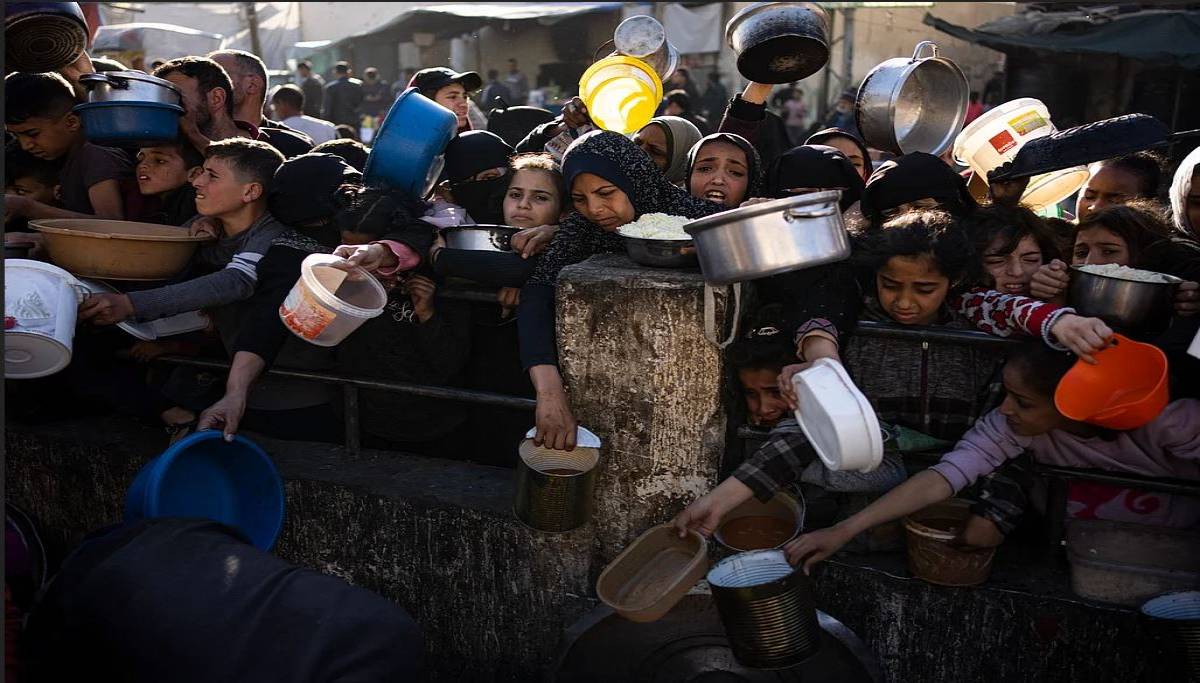1862 Views
Gaza's Last Gasp: Why Keeping Rafah Closed Is a Death Sentence for Millions
As the Gaza Strip faces an unprecedented crisis of food, medicine, and fuel after months of intense blockade, the Rafah crossing has become the last lifeline for over two million Palestinians. This crossing, the only land route not under Israeli control, is managed by Egypt. Keeping it closed effectively condemns the people of Gaza to widespread famine and a humanitarian catastrophe.
According to recent reports from international organizations, reopening Rafah is not only a humanitarian necessity but also the last chance to prevent the complete social and economic collapse of Gaza.
Rafah: Gaza’s Only Lifeline
With all Gaza’s borders sealed by Israel, the Rafah crossing, located on the Egypt-Gaza border, remains the sole overland route for humanitarian aid. Although this crossing has been shut down multiple times in recent years due to political and security concerns, the worsening crises of food and medicine have now made its reopening a matter of survival.
According to the United Nations, more than 90% of Gaza’s population faces severe food insecurity, and available medical supplies have dropped to less than 10% of actual need. Any further delay in opening Rafah will mean an escalation in child, patient, and civilian mortality.
A Crucial Role in Preventing Widespread Famine
Numerous reports from international bodies—including the United Nations and human rights organizations—confirm that a large portion of Gaza’s population, especially children, are facing extreme hunger and acute malnutrition. Many areas are on the brink of total famine.
Under such dire conditions, the immediate and uninterrupted entry of humanitarian aid trucks is only possible through Rafah. A full and permanent reopening could unleash a significant wave of humanitarian assistance, potentially saving the lives of thousands of vulnerable children, patients, and civilians. Without access to food, clean water, and medicine, the hope for survival of many Gaza residents is rapidly diminishing.
Reinvigorating Global Humanitarian Capacity
International aid organizations such as the Red Crescent, the United Nations (particularly UNRWA), Doctors Without Borders, and dozens of NGOs possess massive capacities for emergency response. However, all these capabilities and plans depend on one thing: the Rafah crossing must be open to allow field access for personnel, equipment, and supplies.
Keeping Rafah closed essentially paralyzes all international relief efforts. Medical teams cannot enter, pharmacies remain empty, and food distribution centers are forced to shut down. Rafah is the key enabler for activating and scaling up these organizations' operations. Without access, they are reduced to mere spectators of an unfolding human tragedy.
Preventing Social Collapse in Gaza
Continued blockade and cutoff of aid have not only led to hunger but also caused the collapse of Gaza’s healthcare, education, and social systems. Hospitals have shut down due to lack of electricity and medicine, schools have become makeshift shelters, and communicable diseases are spreading due to the lack of clean drinking water.
The UN Secretary-General has warned that if Rafah, the only humanitarian corridor, is not reopened swiftly, Gaza will become “uninhabitable.” This would mark not only a humanitarian tragedy but also a colossal failure of the international community to uphold human rights.
Growing Legitimacy of Global Demand
International pressure on Egypt to reopen the Rafah crossing is mounting. Many countries and human rights bodies are calling on Cairo to take immediate action to avert human catastrophe in Gaza. In a special report published in July 2025, Al Jazeera noted that Egypt is under political and security pressure from Israel, but this cannot be an excuse for ignoring the rights of Gaza’s people.
Human rights groups insist that keeping Rafah open is not just a humanitarian obligation, but a legal responsibility under international law. The global community must compel Egypt to fulfill its duty in saving Gaza’s children and besieged civilians.
Conclusion
As Gaza teeters on the edge of an unprecedented humanitarian disaster, the Rafah crossing is the only hope. Reopening it could save thousands of lives, curb famine, and enable humanitarian relief to flow. The world must not allow a people to perish due to siege and imposed policies.
Rafah must be opened—before it is too late.
*Translated by Ashraf Hemmati from the original Persian article written by Mohammad Saleh Ghorbani

Comment
Post a comment for this article